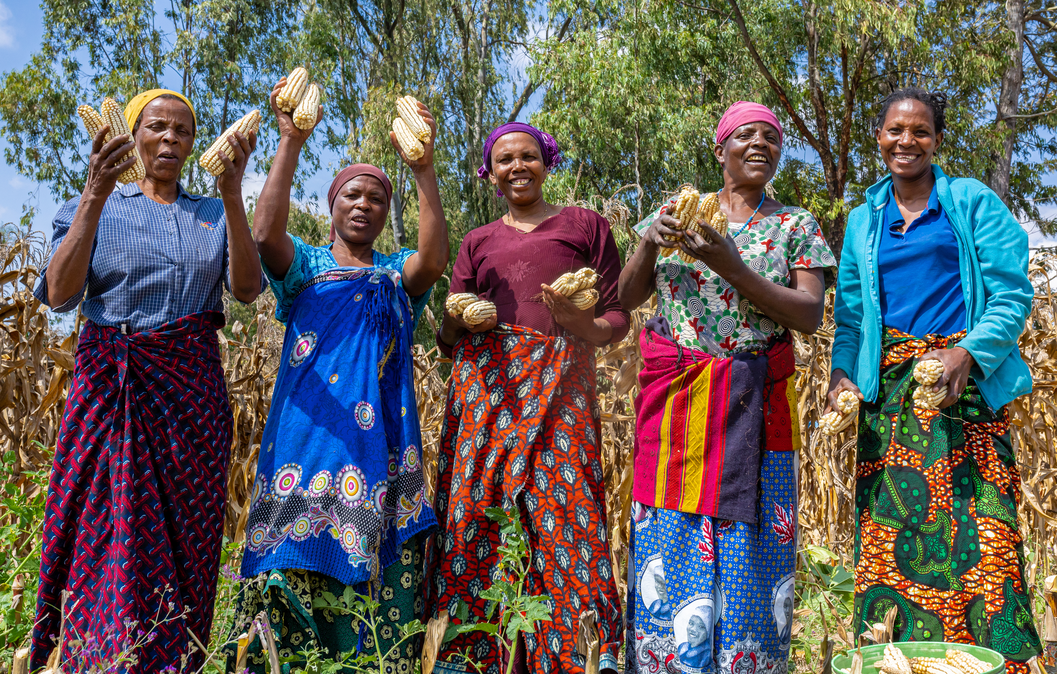Finland’s development policy investment to boost agricultural productivity in East Africa
Inflation, disruptions of raw material supply, extreme weather events and Russia’s invasion of Ukraine aggravate the food security situation in East Africa. The Ministry for Foreign Affairs of Finland will invest in the ARCAFIM programme to boost the agricultural productivity in the region and improve food security. The programme will also create new jobs and improve the living conditions of up to 1.5 million people. Private sector financing will account for half of the programme’s funding.

The Africa Rural Climate Adaptation Finance Mechanism (ARCAFIM) will be launched at the COP28 Climate Change Conference on 2 December. The mechanism was designed by the International Fund for Agricultural Development (IFAD), and Finland will be one of its investors. The ARCAFIM’s goal is to mobilise investments for agricultural initiatives in East Africa to improve productivity and to strengthen food security and livelihoods. The mechanism is expected to improve the living conditions of 1.5 million people. Particular attention will be paid to women and young people.
“Strengthening the position of local farmers and young people is an effective means of reducing uncontrolled migration flows,” says Minister for Foreign Trade and Development Ville Tavio. The ARCAFIM is expected to create 15,000 new jobs in the private sector.
The food security situation in East Africa has worsened because of high inflation, global disruptions in the supply of food and raw materials and extreme weather events, such as consecutive droughts and flood. The ARCAFIM will give small-scale farmers and small and medium-sized enterprises (SMEs) better access to finance so that they can invest in climate-resilient agricultural techniques, which in turn will improve crop productivity and business profitability.
“Enabling access to finance is crucial for advancing climate adaptation within vulnerable rural communities, sustaining and improving the agricultural livelihoods they depend on. The financial and technical support provided by Finland, in collaboration with other key partners, has played a critical role in the establishment of ARCAFIM,” says Alvaro Lario, President of IFAD.
Finland will invest EUR 32 million in ARCAFIM’s programme of loans. The invested capital is expected to flow back to Finland with a small profit over the next 12 years. The investment is part of Finland’s objective to increase cooperation with the private sector in the IFAD.
Half of the funding for ARCAFIM’s loan programme, amounting to USD 90 million, comes from a private partner, Equity Bank. The programme’s total size is USD 180 million. Other international investors, besides Finland, are the Nordic Development Fund (NDF) and the Green Climate Fund (GCF).
“It is important that a private commercial bank is involved in the financing and implementing of the loan programme because in this way granting loans to small-scale farmers and SMEs becomes a permanent part of their business,” Minister Tavio says. “The need for public development finance will reduce when an increasing larger share of the financing needs are met by the private sector.”
Inquiries
- Emmi Oikari, Director, Unit for Development Finance and Private Sector Cooperation, tel. +358 295 350 964
- The email addresses of the Ministry for Foreign Affairs are in the format [email protected].

